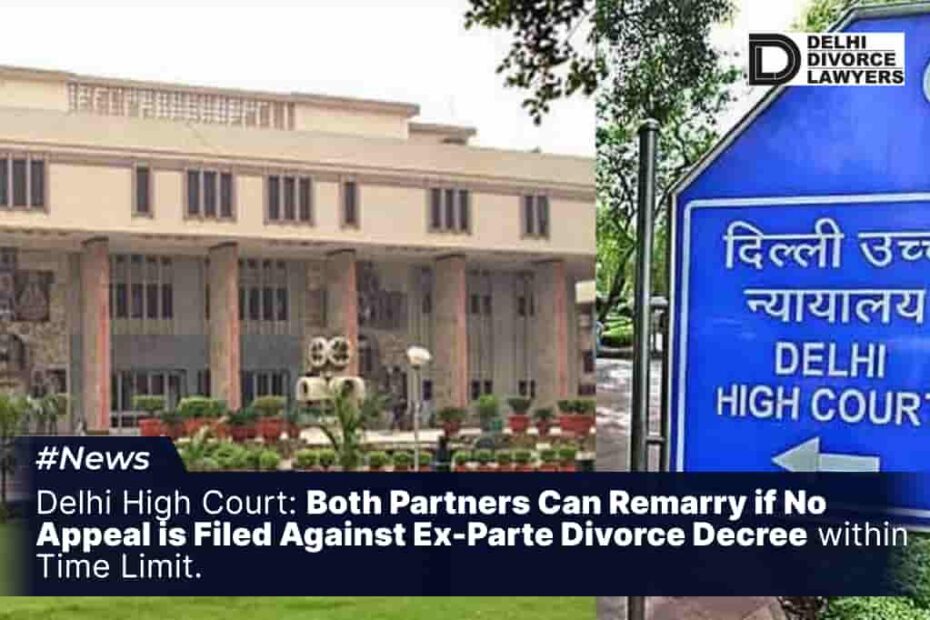The Delhi High Court has ruled that if no appeal is filed within the specified time limit against an ex-parte divorce decree under the Hindu Marriage Act of 1955, either spouse is legally allowed to remarry. The division bench, consisting of Justice Sanjeev Sachdeva and Justice Vikas Mahajan, underscored that according to Section 15 of the Hindu Marriage Act, parties are permitted to enter into a new marriage only after the divorce decree has become final.
“Therefore, in case of an ex parte decree of divorce also it shall be lawful for either party to the marriage to marry again if no appeal is filed against such decree within the period of limitation,” the court said.
As per Section 15 of the Hindu Marriage Act, if a divorce decree has been issued and no appeal has been filed or dismissed within the stipulated time period, either party is legally allowed to enter into a new marriage. The court clarified that the prohibition on remarriage only applies during the pendency of an appeal, and that too only if the appeal is filed within the time limit. The bench emphatically emphasized that once a divorce decree is issued, the marriage is dissolved, and the parties no longer hold the status of husband and wife with respect to each other.
“Each one becomes competent to contract another marriage as provided by section 15 of the Act. In law the effect of ex parte decree of divorce is not different from a contested one. Even Section 15 of the Act does not make any distinction between a contested decree and an ex parte decree. Therefore, in case of an ex parte decree of divorce also it shall be lawful for either party to the marriage to marry again if no appeal is filed against such decree within the period of limitation.”
The court made these observations while dismissing an appeal filed by a wife who was contesting an order issued by an Additional District Judge in 2006, which had denied her application to set aside an ex-parte divorce decree. The trial court had granted the husband’s divorce petition in 2003, based on grounds of desertion, and had issued a decree in his favor in his absence.
The wife’s application was rejected by the Additional District Judge, who stated that she had knowledge of the pending divorce petition and that her claim of not being properly served could not be accepted. The bench upheld the dismissal of the wife’s plea, citing statements made by both the wife and her father. The court noted that the wife had been served with summons and had received a copy of the divorce petition through her advocate. Therefore, it concluded that the wife had been duly notified of the hearing date for the divorce petition and had ample time to appear in court and respond to the husband’s claim.
“In the circumstances, the contention of the appellant that she was not duly served and that she had no knowledge of the divorce petition filed by the respondent before the Court in Delhi is bereft of any merit,” the court said.
Furthermore, the bench observed that the wife did not contest or dispute the husband’s remarriage in 2004, and in fact, mentioned it in an affidavit filed in 2007.
“In the present case no appeal was preferred within the period of limitation or even thereafter. The application under Order 9 Rule 13 CPC was also filed after seventeen months from the date of ex parte decree as against limitation period of thirty days from the date of decree as provided under Article 123 of the Limitation Act, despite the appellant having been duly served with summons. In the circumstances, it was lawful for the respondent husband to solemnize another marriage,” the court said.
Title: SD v. RKB
Source: https://www.livelaw.in/high-court/delhi-high-court/delhi-high-court-ex-parte-divorce-decree-limitation-period-hindu-marriage-act-226918

